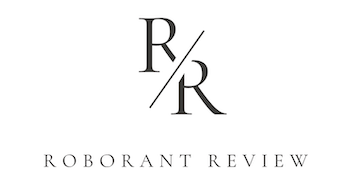Piper Lewine, Double Negative Nancy, Four Barrel Coffee - Valencia Street, San Francisco
By Kelly Jean Egan
At Four Barrel Coffee on Valencia, Piper Lewine’s Double Negative Nancy explodes like pockets of small fireworks amid the hum of espresso machines and afternoon light. The café’s brick-and-beam warmth becomes an unlikely vessel for her painted and mixed-media works; objects that seem both handmade and self-aware, their folk-inflected surfaces vibrating with an undercurrent of irony. Lewine’s images, with their off-kilter charm and deliberate imperfections, invite the viewer to linger beyond first glance. They are colorful but not naïve, playful but edged with something faintly uneasy. In this body of work, she revisits familiar motifs of mirroring and reflection, using them not as devices of symmetry but as tools for introspection. This doubling reveals how sweetness can coexist with skepticism, and how optimism, when honestly rendered, must account for its shadow.
Lewine’s aesthetic is rooted in play and experimentation. She works with whatever materials cross her path be it acrylic, oil, watercolor, embroidery, glass, wood, found metal or even hand-tufted rugs. This breadth gives her practice a sense of freedom and immediacy; any surface can become a canvas, any object a point of departure. The result is a body of work that feels both spontaneous and intentional, shaped by curiosity and instinct rather than formula. There’s a quiet resourcefulness in her approach, an understanding that inspiration often begins in the overlooked or discarded. In this way, her work reflects a distinctly Bay Area spirit—adaptable, inventive, and unbothered by boundaries.
While her vivid and opulent palette includes vibrant colors such as turquoise, coral, lemon, and bright rose, Lewine’s work isn’t content to stay cheerful. Beneath the color sits a pulse of something more complex: vulnerability, doubt, the quiet friction of daily life. Her pieces often balance joy with unease, using playful forms to house more grounded emotions. It’s this contrast that gives the work its strength. The brightness draws you in, but it’s the honesty that holds you there. Lewine seems to recognize that sincerity isn’t always soft; that optimism can carry the trace of fatigue, and that beauty often includes what’s difficult to name. In Double Negative Nancy, the tension between color and feeling becomes the language through which she speaks most clearly.
In A Million Miles Below Their Feet, Lewine brings her conversation between color and emotion into sharp focus. The figure, rendered in vibrant reds, greens, and ultramarine blues, sits in a state of poised introspection with a hand to the chin and eyes tilted toward thought. The palette is jubilant, almost defiant in its brightness, yet the expression resists it: the subject appears somewhere else entirely, adrift in private reflection. Around her, ornamental patterns such as a fish, fruit, flowers, all vibrate with saturated life, creating an atmosphere that’s equal parts fairy tale and fever dream. A bitten apple rests at the lower edge, a small but pointed symbol of knowledge, temptation, or the aftermath of choice, reminding us that innocence and awareness often share the same stage. The title deepens the paradox: while the surface dazzles, the sentiment moves downward, “a million miles below,” where quiet emotion persists beneath the shimmer. It’s this dissonance between what is seen and what is felt that gives the work its profound gravity.
In Innocent Enough, Lewine again disguises depth behind a facade of brightness. The central figure, with curved red horns and an almost childlike gaze, radiates the same mix of curiosity and quiet sorrow found throughout this body of work. Their eyes are half-lowered and slightly distant, carrying a melancholy that contradicts the saturated world around them. Behind them, leaves fall in patterned rhythm, a smaller figure floats midair, and a teapot gleams with impossible geometry. Each element buzzes with color, yet nothing feels entirely safe within it. The expression anchors the chaos: soft, pensive, unguarded. Lewine paints emotion without dramatizing it; her characters don’t perform feelings—they inhabit them. Here, innocence is not purity but persistence, the effort to remain open despite what the world reveals.
Encountered within the warmth of Four Barrel Coffee, these works take on a disarming immediacy. The café’s rhythm of cups clinking, steam hissing, and people talking over the music, seems to soften the distance between viewer and artwork. Lewine’s figures, already vulnerable in their quiet self-awareness, feel even more accessible in this environment. The show doesn’t ask for hushed contemplation; it invites passing glances that might unexpectedly linger. The intimacy of the space amplifies the emotional transparency of the paintings; each one a brief confession disguised as decoration. In a more formal gallery, their color might dominate; here, their humanity does. The blend of domestic setting and sincere expression creates an atmosphere of shared tenderness, reminding us that art, like conversation, can thrive in the middle of everyday noise.
Lewine’s work shows us that color need not equate to simplicity. Her use of vivid palettes feels less like an escape from reality and more like a confrontation with it; an insistence that emotional honesty can wear bright clothes. What could, in lesser hands, read as decorative becomes in hers an act of candor. The multidisciplinary nature of her practice—moving easily between paint, textile, glass, and found objects—reveals not restlessness but fluency. She speaks many material languages, each with the same quiet precision. There’s a natural talent here, yes, but it’s grounded by discipline: a sense of when to let an idea breathe and when to rein it in. With Double Negative Nancy, Lewine demonstrates how emotion can function as both subject and substance, distilled through her command of color and form into work that feels at once tender and resolved.
September 11 - November 12, 2025






